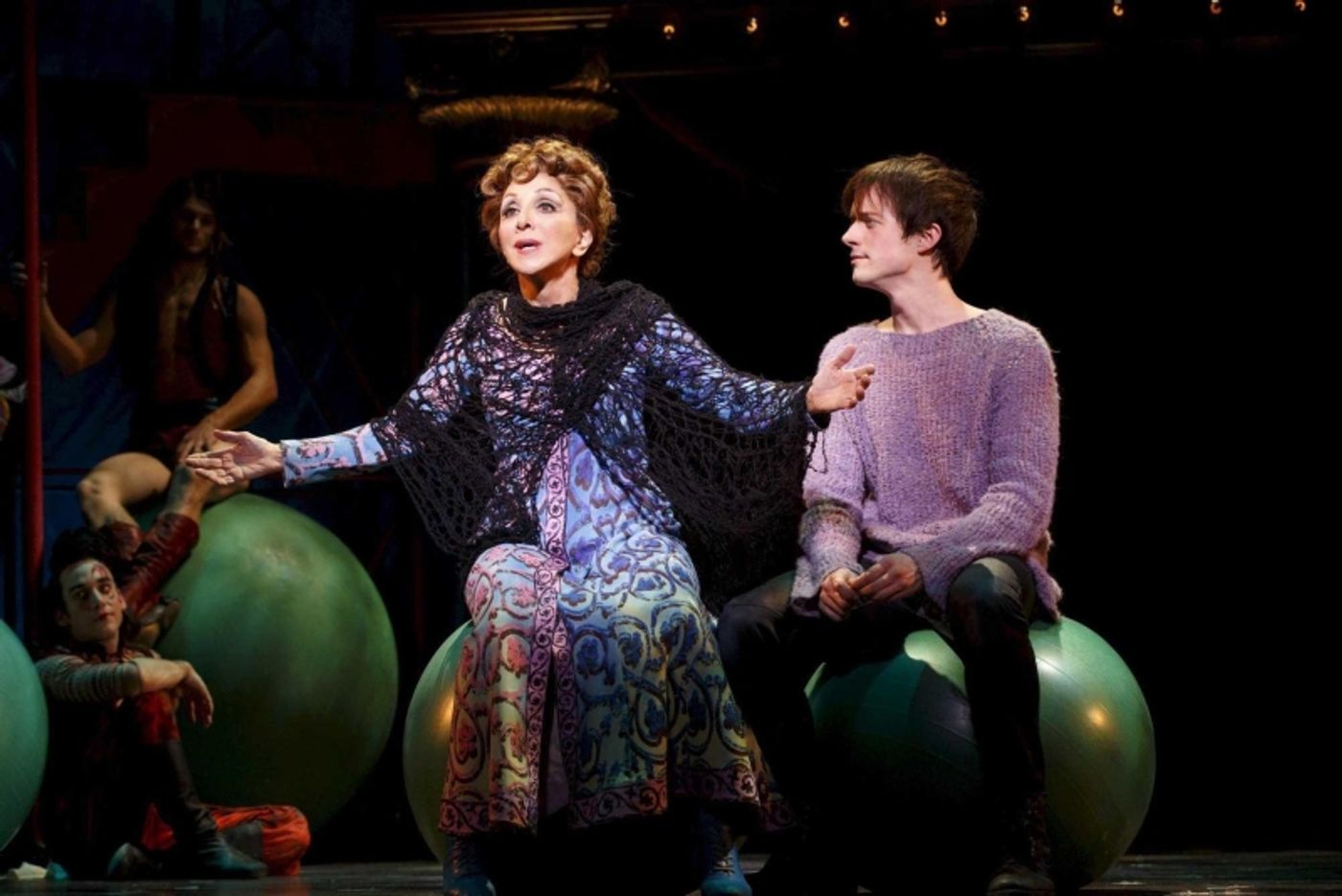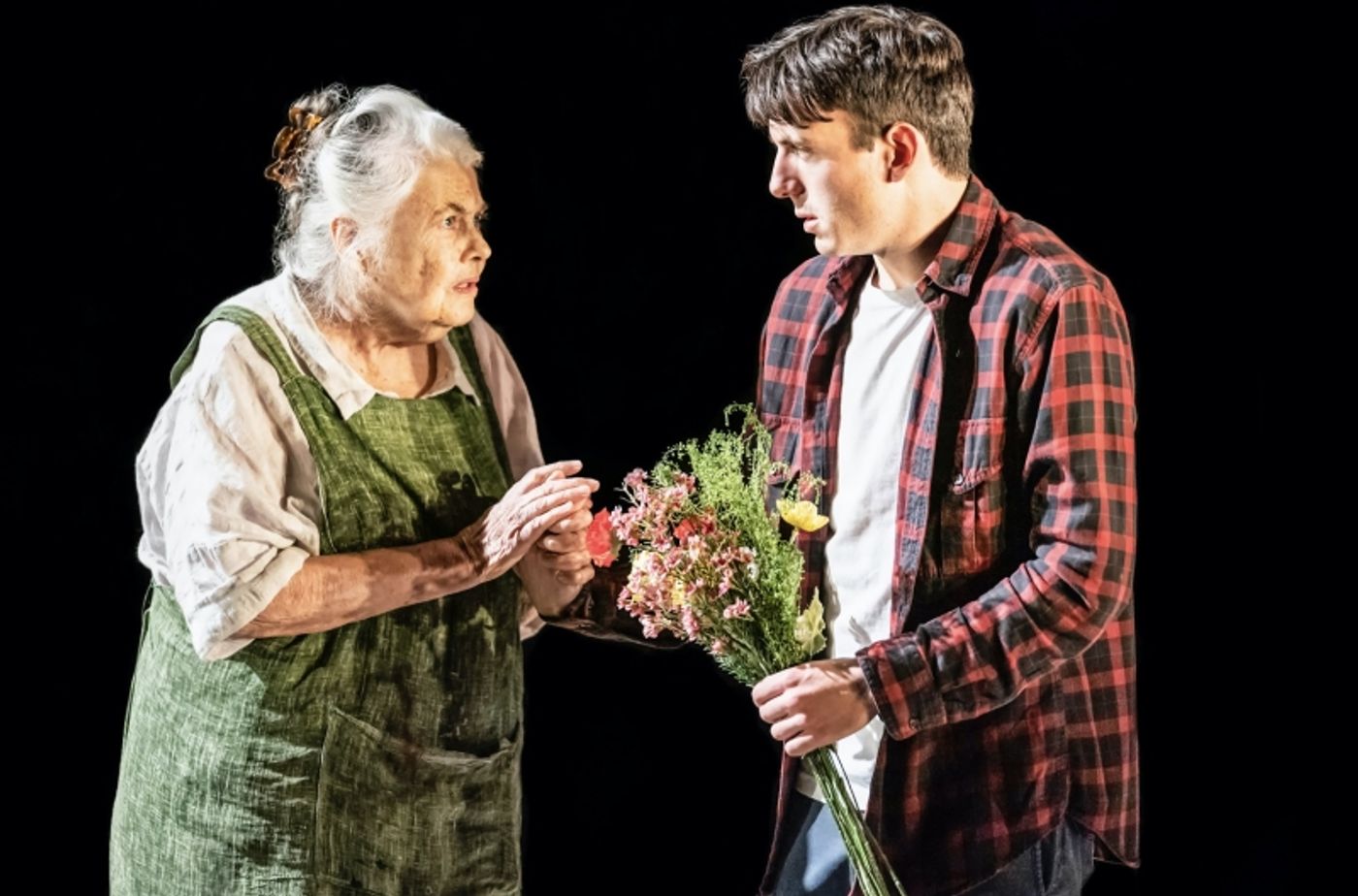What Are The Smallest Parts to Win Tony Awards?
Jennifer Ashley Tepper Is answering your questions with Broadway Deep Dive!
Do you have a burning Broadway question? Dying to know more about an obscure Broadway fact? Broadway historian and self-proclaimed theatre nerd Jennifer Ashley Tepper is here to help with her new series, Broadway Deep Dive. Every month, BroadwayWorld will be accepting questions from theatre fans like you. If you're lucky, your question might be selected as the topic of her next column!
Submit your Broadway question in the comments here!
This month, the reader question was: We always hear that there are no small parts... What are some of the performances with least stage time to win Tony Awards?
I am answering this reader question in honor of the upcoming Tony Awards!
While the large majority of those who have won Tony Awards for performances on Broadway have put in significant stage time in their roles, there are a few notable exceptions. Who are the artists who impressed Tony voters so much that they won their trophies, even with relatively minimal stage time?
In 1981, Marilyn Cooper famously went home with the Tony Award for Best Featured Actress in a Musical for her brief but scene-stealing performance in Woman of the Year. Cooper was a stage veteran with 14 previous Broadway credits, including the original productions of West Side Story, Gypsy, and Mame, when she played Jan Donovan in Woman of the Year.
With a score by John Kander and Fred Ebb and book by Peter Stone, Woman of the Year was based on the 1942 film. The Broadway bow at the Palace starred Lauren Bacall as sophisticated metropolitan news celebrity Tess Harding. The plot found her at odds with romantic interest, cartoonist Sam, and eventually having trouble making their marriage work. In the second half of act two, Tess went to visit her domestic first-husband-turned-friend and his wife, to find out what made their marriage tick. Not until this moment did audiences meet the character of Jan in her house dress and hair rollers.
Cooper’s wry, droll delivery of some of Fred Ebb’s best lyrics, opposite Lauren Bacall, in “The Grass Is Always Greener”, won Cooper her Tony Award. The song found two very different women musing about how the other had the advantage based on her life choices. Bacall and Cooper countered each other’s assumptions about their characters in this show-stopper that even boasted a false ending and then one final section that brought the house down. Based on this, Cooper won the Tony Award over several women with far more stage time than her: Wanda Richert in 42nd Street, Phyllis Hyman in Sophisticated Ladies, and Lynne Thigpen in Tintypes.
While Cooper didn’t get to display her award-winning performance on that year’s broadcast (Woman of the Year performed a different number, “One of the Boys”), she did perform “The Grass Is Always Greener” on the 1984 Tony Awards, opposite replacement Tess Harding, Raquel Welch, in a tribute to Kander and Ebb. Cooper is often who first comes to mind when longtime theatre fans think of a Tony win with brief stage time.
Broadway’s only Pippin revival, in 2013, featured Andrea Martin as Berthe, the titular character’s grandmother. Stage and screen star Martin stole the show singing “No Time At All”, and other than that scene, only briefly appeared in the show. It was no wonder that Tony voters walked out of the Music Box thinking about Martin; at the age of 66, she belted out the Stephen Schwartz favorite while swinging on a trapeze, often upside down, without a harness! Martin led the traditional audience sing-along of the number while infusing Berthe with her trademark humor. (In the original 1972 production, Irene Ryan originated the role of Berthe and was nominated for the Tony Award but lost.)

The shortest stage time Tony Award win that was achieved by both the performer who originated the role and the performer in a revival belongs to Marian Mercer and Katie Finneran, who each portrayed Marge MacDougall in Promises, Promises. Mercer won for the 1968 production and Finneran for the 2010 revival, each spending about 15 minutes on stage. For the top of act two, Neil Simon wrote the hilarious character of Marge, who meets the protagonist at a bar and drunkenly goes home with him. She takes part in one number of the Burt Bacharach-Hal David score and the audience doesn’t see her again until curtain call.
As far as performances in plays, Adriane Lenox won the Tony Award for her breathtaking performance in the 2005 Pulitzer Prize-winning play Doubt by John Patrick Shanley. Doubt was about nuns and a priest at a Catholic school in the 1960s, contending with a potential case of sexual misconduct involving a student. Lenox played that student’s mother and in her approximately 10-minute-scene, she imbued the scenario with a complexity and pathos that rippled through the whole rest of the drama.
Most recently, Lois Smith won the Tony Award for her performance in Matthew Lopez’ epic The Inheritance, after appearing on stage for less than 20 minutes. In the ceremony to commemorate Broadway being back, Smith, then age 90, became the oldest person to win a performance Tony Award. She made her Broadway debut in 1952, and won her first Tony Award about five decades later.

While not as extreme in terms of brief stage time as most of the other Tony Award winning roles on this list, Grizabella in Cats only appears for a fraction of the amount of time of the other felines, who are relentlessly performing in all of the ensemble numbers. Betty Buckley won the 1983 Tony Award as Grizabella, breaking hearts with her legendary performance of “Memory”. In 2007, Mary Louise Wilson won for her performance in Grey Gardens, despite her character of Big ‘Edie’ Beale never appearing in act one.
Historically, it does seem that more Featured Actresses than Featured Actors have won the Tony Award with roles only on stage for a relatively short period of time. Worth noting in the Featured Actor category is René Auberjonois, who won the Tony in 1970 for portraying Sebastian Baye, rival of Coco Chanel, in Coco. The character of Sebastian Baye vibrantly opened act two with his big number “Fiasco”, flaunting a failure of Coco's. Auberjonois was otherwise only in one other number, and boasted relatively small stage time, especially compared to other winners of the Featured Actor award, historically.
Comments

Videos

